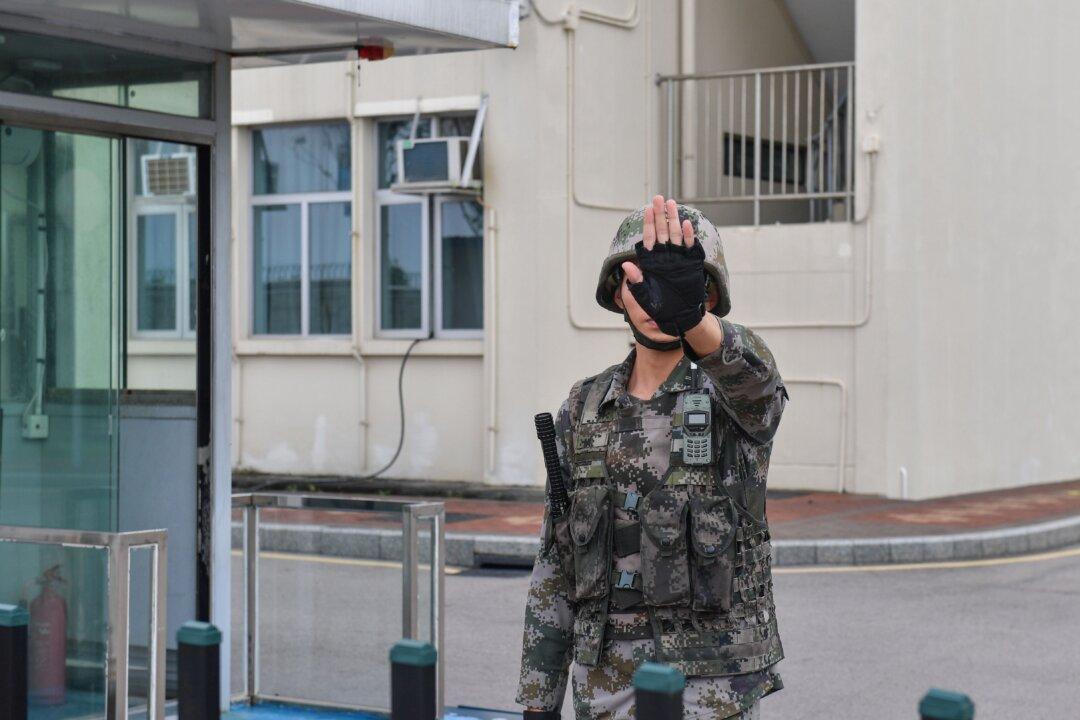A senior officer in the Chinese military garrison stationed in Hong Kong who’s been derided as the “Rolex colonel” used bribes to obtain his rank, an insider told the Chinese-language edition of The Epoch Times.
Col. Wang Yanshun, head of logistics in the Chinese People’s Liberation Army (PLA) Hong Kong garrison, spent a large sum to be promoted to second-in-command to current garrison commander Maj. Gen. Chen Daoxiang, the insider said.





